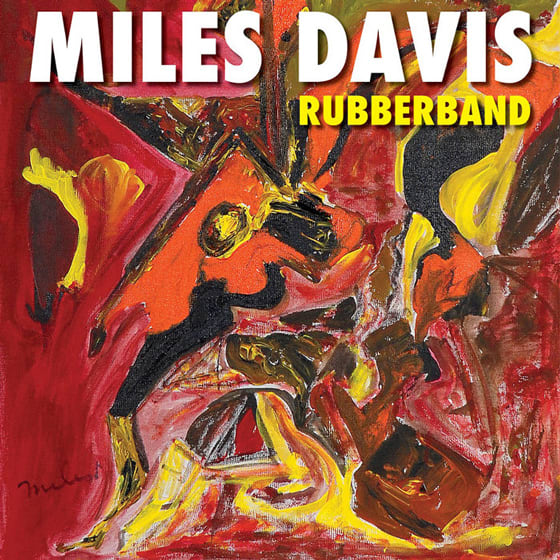Mixed media artist Mike Hansen coined the term "re-bop" in the early '90s to describe the mining of Verve, Blue Note and other jazz label archives by emerging hip-hop artists. The term applied just as accurately to Guru and US3 back then as it does now to this reconstructed Miles Davis effort.
Rubberband is a kind of well-intended Frankenstein's monster of a project. By the time of its recording in 1985, Davis had become disgruntled with longtime label, Columbia Records, and was now a member of the Warner Bros. roster. His interests had veered even further away from traditional jazz than his famously rich electric period; pop and R&B music had his attention. His last Columbia release, You're Under Arrest, featured reinterpretations of Michael Jackson's "Human Nature" and Cyndi Lauper's "Time After Time." Davis had plans to pull in Chaka Khan and Al Jarreau on this new project.
The sessions went a bit sideways and were shelved. Davis turned to what would become the sublime Tutu.
What we have here are the original recordings, plus additions layered on in the years following Davis's passing. The result feels true to his original vision, even as it recalls the excesses of mid-'80s and early '90s R&B.
To be sure, there are genuinely inspired moments rising from Davis's trademark muted trumpet. The nature of the recording — and to be fair, his vision for the project — mean we sometimes have to cut through the accompaniment to appreciate what he's laying down. But it is all here —the great Miles Davis, still very much on point, despite being near the end of his tumultuous life.
There will be those who argue against the decision to resurrect Rubberband. If Davis stopped working on something, perhaps we should respect that. And it is not difficult to imagine a small industry springing up around the repurposing of dusty old cast-offs by Prince, Bowie and the like. The idea of freshening up those old sessions with a touch of studio wizardry and a new bass line feels crass for a bunch of good reasons.
That all being said, Rubberband has been executed with genuine respect for the artist. There's enough greatness here to justify the effort. Even if we hope this doesn't launch a new kind of re-bop craze, it's still great to press play on another Miles Davis album.
(Rhino)Rubberband is a kind of well-intended Frankenstein's monster of a project. By the time of its recording in 1985, Davis had become disgruntled with longtime label, Columbia Records, and was now a member of the Warner Bros. roster. His interests had veered even further away from traditional jazz than his famously rich electric period; pop and R&B music had his attention. His last Columbia release, You're Under Arrest, featured reinterpretations of Michael Jackson's "Human Nature" and Cyndi Lauper's "Time After Time." Davis had plans to pull in Chaka Khan and Al Jarreau on this new project.
The sessions went a bit sideways and were shelved. Davis turned to what would become the sublime Tutu.
What we have here are the original recordings, plus additions layered on in the years following Davis's passing. The result feels true to his original vision, even as it recalls the excesses of mid-'80s and early '90s R&B.
To be sure, there are genuinely inspired moments rising from Davis's trademark muted trumpet. The nature of the recording — and to be fair, his vision for the project — mean we sometimes have to cut through the accompaniment to appreciate what he's laying down. But it is all here —the great Miles Davis, still very much on point, despite being near the end of his tumultuous life.
There will be those who argue against the decision to resurrect Rubberband. If Davis stopped working on something, perhaps we should respect that. And it is not difficult to imagine a small industry springing up around the repurposing of dusty old cast-offs by Prince, Bowie and the like. The idea of freshening up those old sessions with a touch of studio wizardry and a new bass line feels crass for a bunch of good reasons.
That all being said, Rubberband has been executed with genuine respect for the artist. There's enough greatness here to justify the effort. Even if we hope this doesn't launch a new kind of re-bop craze, it's still great to press play on another Miles Davis album.
